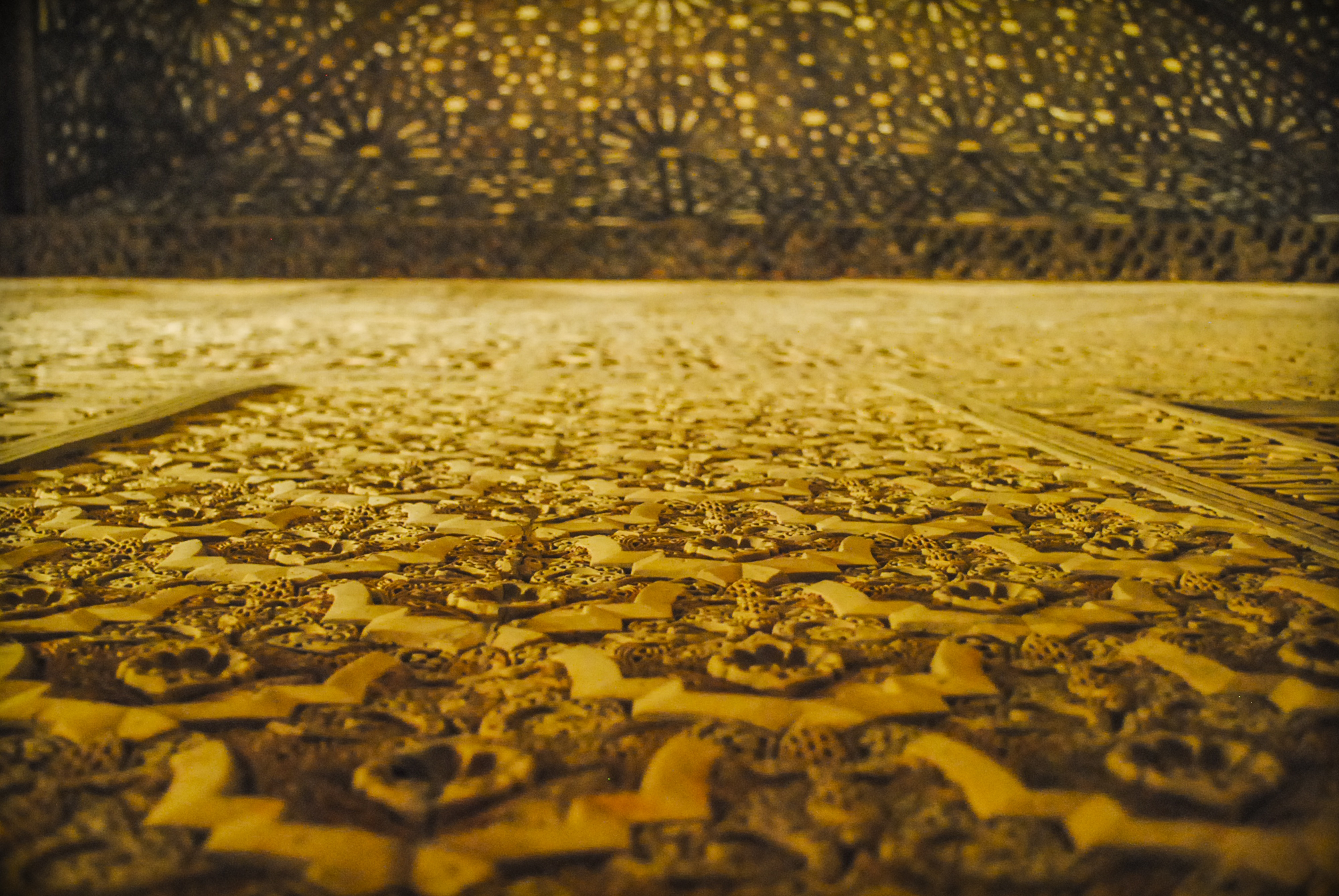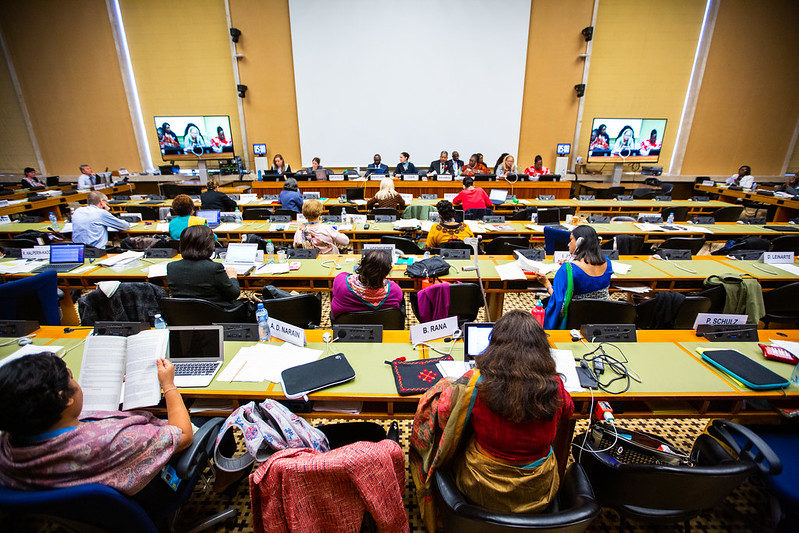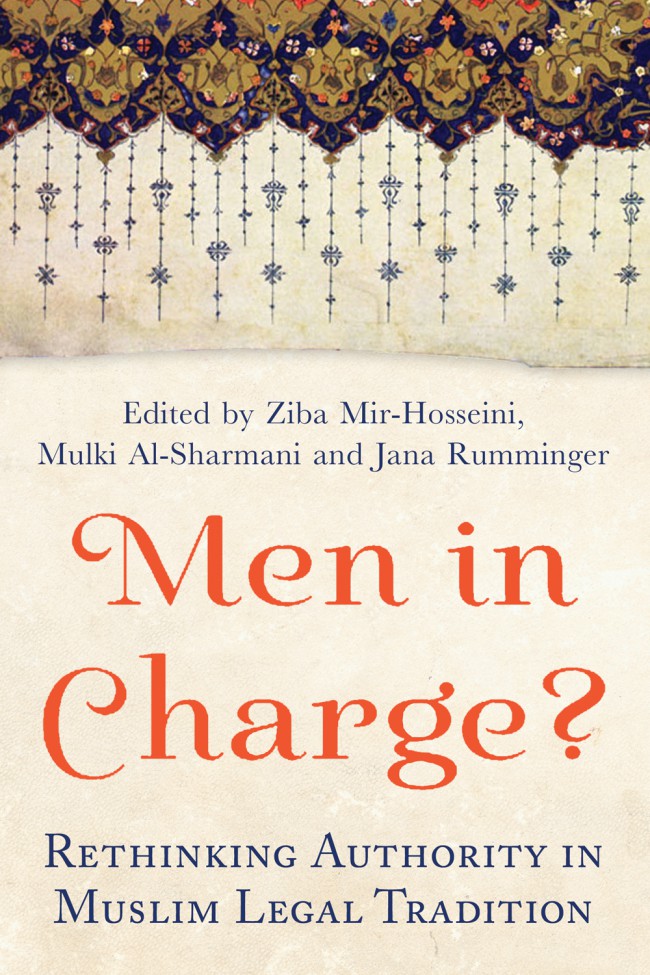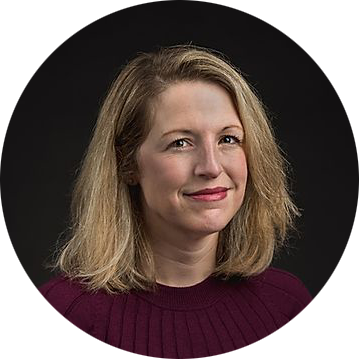
Islam and Women’s Rights: Postcolonial Challenges
Shannon Dunn
Wall, Arabic, Alhambra Image (Pixabay)
This article is part of our “Natural Law, Human Rights, and ‘Unalienable Rights” series.
If you’d like to check out other articles in this series, click here.
U.S. Secretary of State Mike Pompeo’s formation of the Commission on Unalienable Rights has generated controversy among human rights advocates, in part because of the possibility that the committee will limit the rights of women and other groups. Such questions are particularly acute in the case of Muslims concerned with both human rights and religious norms. Overall, the relationship between Islam and universal human rights is one of contest and negotiation, as it is situated firmly in the context of postcolonial global politics. I wish to highlight five factors pertaining to Muslim views of universal human rights that may influence how the broader global Muslim community perceives the purpose of the Commission. The first three points address different Muslim arguments related to human rights discourse, noting divergent views about the sources and purpose of rights. The final two points highlight the imprint of colonialism on debates related to women’s human rights within the Muslim community and address the conflict between religious freedom and women’s rights as categories, bringing us back to the work of the Commission. (These points are not meant to be exhaustive in their descriptions, but rather invite further reflection and conversation.)
First of all, Muslim receptions of the theory and practice of universal human rights must be understood in light of the collective experience of colonialism, in which Western countries exerted power over Muslim-majority countries through political, economic, and military means. Although representatives from several Muslim-majority states helped to draft the Universal Declaration of Human Rights in 1948, for many Muslims there remains a question whether the UDHR, with its consistent privileging of individual liberties, is a product of Western secular reasoning. This suspicion has contributed to the production of specific Islamic human rights documents, such as the Cairo Declaration of 1990 and the Universal Islamic Declaration of Human Rights of 1981. The Islamic human rights arguments in these documents eschew Western secularism, criticize colonialism, and situate the Qur’an and the Islamic Shari’ah (divine law) as the basis for human rights. In doing so, they identify the project of human rights with a specific Islamic political program, complicating matters such as tolerance for religious diversity and non-traditional gender roles and relations.
Second, as a consequence of colonialism and postcolonialism, some Muslims view the entire project of human rights as one fraught with hypocrisy. Wealthy secular countries, often in order to maintain economic and political advantages, have excused themselves from answering for human rights violations. When it comes to women’s rights, it is notable that the U.S. has still not ratified Convention on the Elimination of Discrimination Against Women (CEDAW). Moreover, the very distinction that the Pompeo Commission seeks to draw between inalienable human rights and “ad hoc” rights mirrors colonial discourse and the way in which colonizing countries encouraged ethical relativism in rights discourses in order to support the unjust and unequal treatment of colonized persons.

71st Session Committee on the Elimination of Discrimination Against Women. Consideration of The Bahamas, United Nations Office in Geneva, Ambassador Veronika Bard. October 25, 2018 / Elma Okic / Flickr / CC BY-NC-ND 2.0
Third, some Muslim activists and intellectuals have embraced universal human rights as a mechanism for political change, despite the association of the UDHR with secular reasoning and Western hegemony. In fact, a good number of Muslim human rights activists identify as such because of their commitments to women’s rights. These theorists have distinguished between universal human rights, on the one hand, and the prerogative of state authorities, on the other. They recognize that state governments, including Western and secular ones, often evade universal rights demands on account of their self-interest, or more frequently as of late, ethnonationalism. Whereas skeptics highlight the impossibility of universal rights due to political corruption and hypocrisy of Western secular states, advocates maintain that a concept of human rights can be grounded in Islamic ethical traditions, and is necessary for preventing abuses of political power globally.
Islamic law scholar and American law professor Khaled Abou El Fadl has argued that Muslims ought to utilize Islamic teachings about justice and mercy to support human rights. He has been critical of Islamic interpretations of rights that collapse the pursuit of human rights with the pursuit of an Islamic system of governance. Other Islamic law scholars have revisited classical legal and theological traditions in order to articulate what a natural or human rights tradition in Islam looks like. Anver Emon has outlined possible pre-modern Islamic natural law arguments, examining how Muslims conceptualized notions of God’s justice in relation to human action and responsibility. Emon maintains that it is necessary to think about the global politics operative in the quest for a revived natural law tradition, as it comes at a time when the Islamic tradition and Muslims are often defined by national security frameworks. Any appropriation of Islamic rights traditions is shaped by contemporary political considerations of what is considered rational, natural, or just.
Fourth, the question of women’s human rights in Islam resides at the heart of the debate about universal human rights, Islam, and the state. During the colonial period, European ruling regimes largely left family law untouched, which allowed elite Muslim men to dictate rules around marriage, divorce, child custody, and so on. In Muslim-majority states in the contemporary world, Islamic family law remains a site for the production and preservation of Islamic identity—often defined against secular Western gender norms. It has not helped that some Americans have cited Muslim women’s liberation, a trope that has roots in European colonialism, as a justification for the so-called War on Terror. Ziba Mir Hosseini has argued that state acts as the interpreter of Islamic norms and often uncritically reflects an entrenched patriarchal bias. The state’s monopoly on Islamic family law does not always go unchallenged, as Zakia Salime’s work on Moroccan women’s activism shows. She highlights how secular feminists, the ‘ulama (Islamic scholars), and women’s Islamist groups used activism to reject the Moroccan monarchy’s interpretation of Islamic family law. If Pompeo’s Commission further defines the rights of women in culturally relativistic terms, rights advocates may interpret such action as encouraging male elites within Muslim-majority countries to define women’s roles and rights according to their respective interests.


Mir-Hosseini, Ziba. Men in Charge?: Rethinking Authority in Muslim Legal Tradition. Oneworld, 2015.
Salime, Zakia. Between Feminism and Islam: Human Rights and Sharia Law in Morocco. University of Minnesota Press, 2011.
Finally, we can learn something from interesting areas of overlap in between certain Muslim and Catholic arguments about religion, the state, and human rights. Comparative and family law scholar, Mary Ann Glendon, a former U.S. Ambassador to the Holy See, who is leading the Commission, has argued that the categories of religious freedom, on the one hand, and women’s and LGBTQ rights, on the other, are distinct and perhaps fundamentally in conflict. In her work, Glendon has argued for increased institutional religious freedom, more closely aligning religious institutions with state power and leveling a corresponding critique of secularism. This argument relates to what she views as the disproportionate rise of individual liberties and the decline of institutional religious freedom in the United States.
The idea that religious authorities should have access to the mechanism of state power in order to promote their particular aims, regardless of the diversity of views and identities of the body politic, is noteworthy for our discussion. (We can look to the contemporary example of the Islamic Republic of Iran as one of the most dramatic embodiments of religious institutionalism in a modern state.) This position is at odds with the idea of human rights as a tool for criticizing, preventing, and redressing abuses of power by the state—particularly when it comes to violations of women’s human rights. In situations where religious authorities wield disproportionate power within the state, we should pay attention to whether the categories of religious freedom and individual women’s rights are framed as oppositional. When they are defined as such, arguments for expanded religious freedom will pose certain risks to women’s rights, or at the very least will necessitate re-working the concept of women’s rights so that it is more aligned with the goals of religious authorities. Indeed, the potential melding of religious authorities and state power that the Pompeo Commission may be inclined to embrace appears to be more in step with the practice of some postcolonial Muslim-majority states than with the UDHR. While suggestive and controversial, the comparison allows us to consider how posing women’s rights and religious freedom as conflicting concepts might operate in cross-cultural contexts.
To conclude, the idea and practice of women’s human rights in Muslim-majority states are often challenged by the close alignment of the state and religious authorities. This phenomenon can be understood with reference to the history of colonialism and a continued suspicion of Western political hegemony. With the creation of the Commission on Unalienable Rights, we may discern the reassertion of colonialist patterns of engagement in the relativizing of women’s rights. In addition, we should be curious about whether the Commission engages in oppositional framing of religious freedom and women’s rights, echoing the reasoning of Islamic human rights documents.

Shannon Dunn is Associate Professor of Religious Studies at Gonzaga University. She was recently elected the President of the Society for the Study of Muslim Ethics (SSME). Her research addresses gender, violence, and religious and secular systems of law, with particular focus on global Muslim communities.
Recommended Citation
Dunn, Shannon. “Islam and Women’s Rights: Postcolonial Challenges.” Canopy Forum, January 29, 2020. https://canopyforum.org/2020/01/29/islam-and-womens-rights-postcolonial-challenges-by-shannon-dunn/

